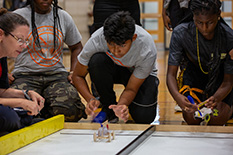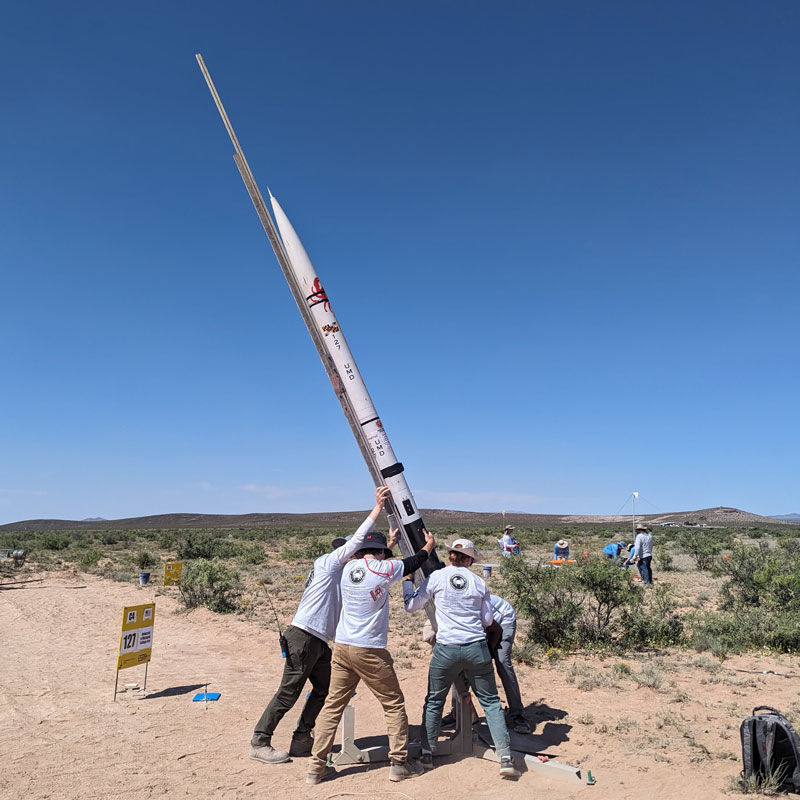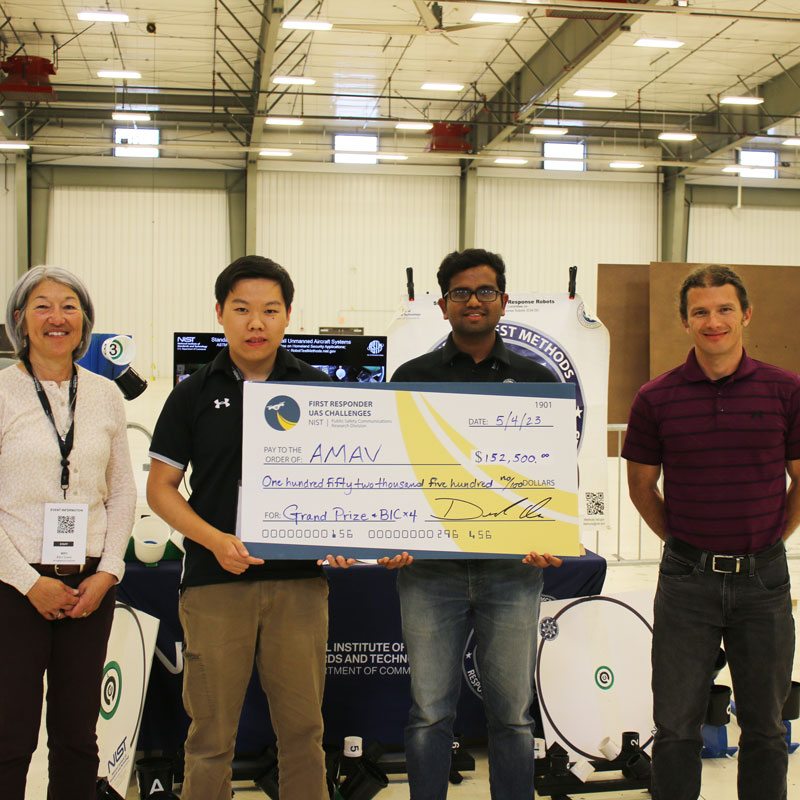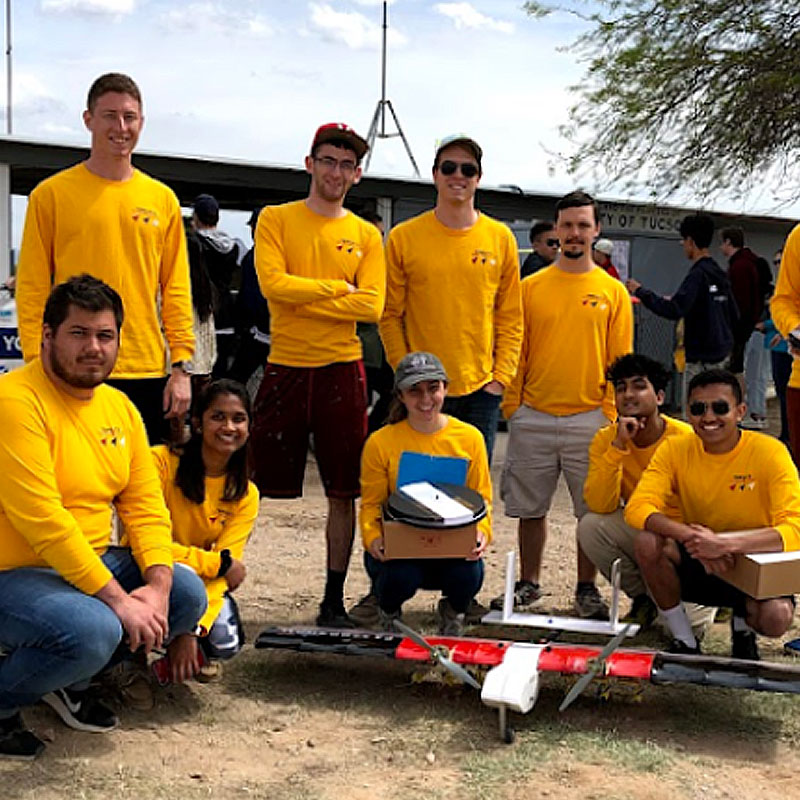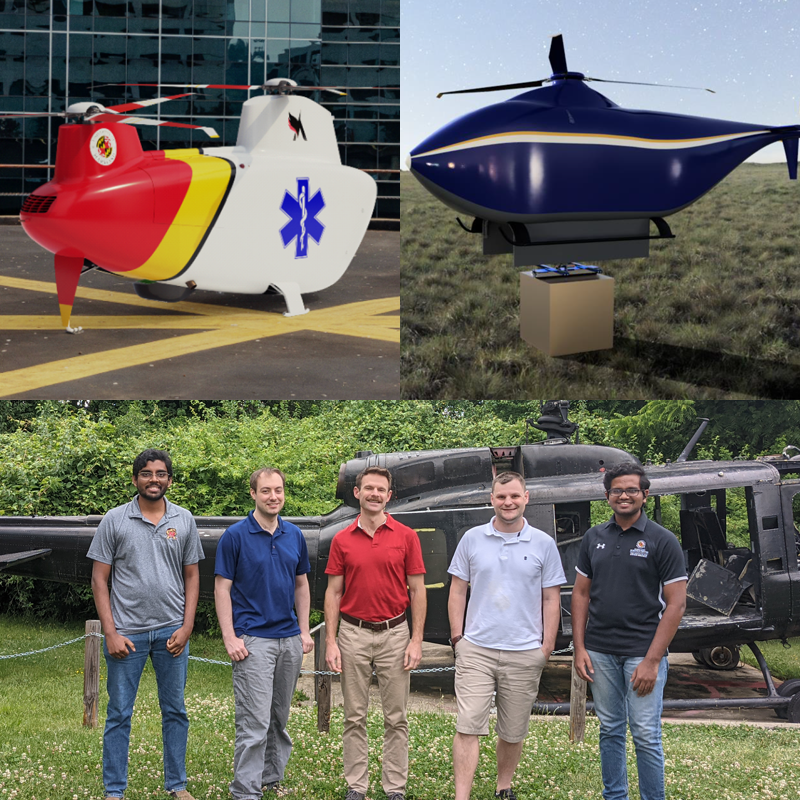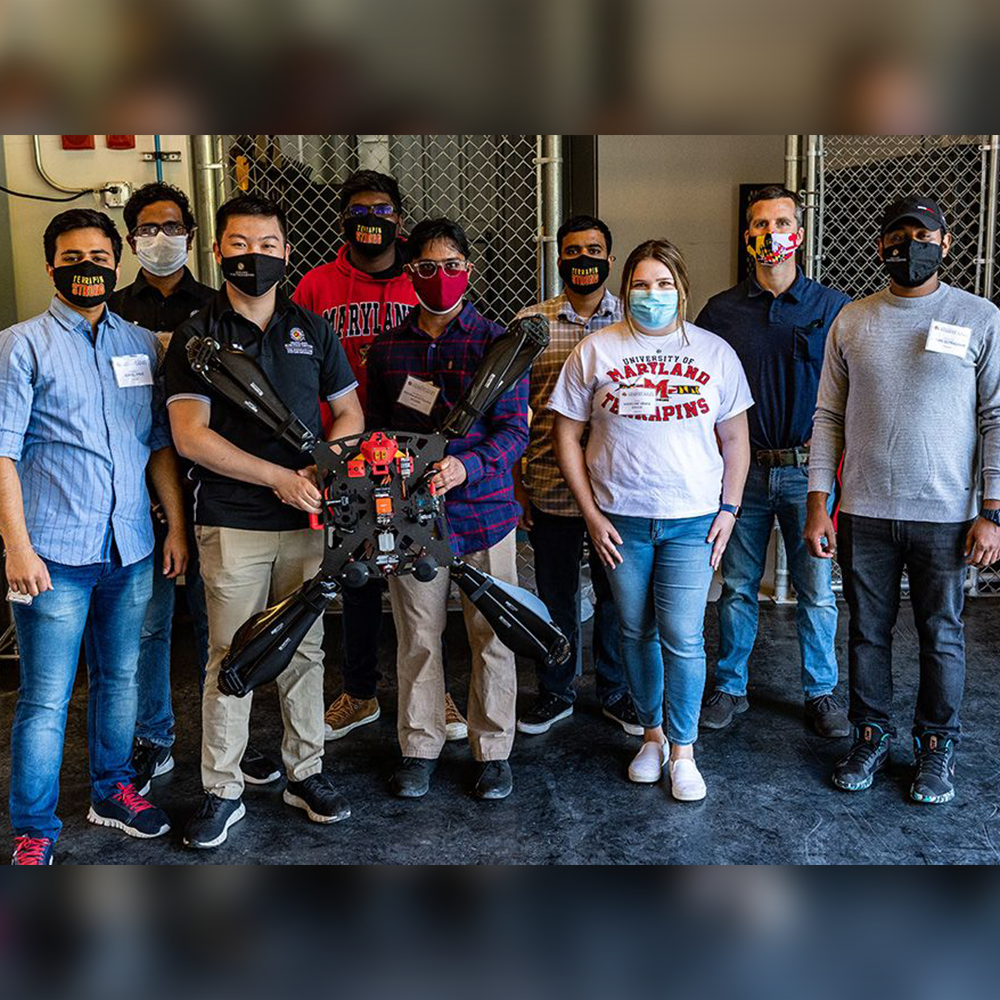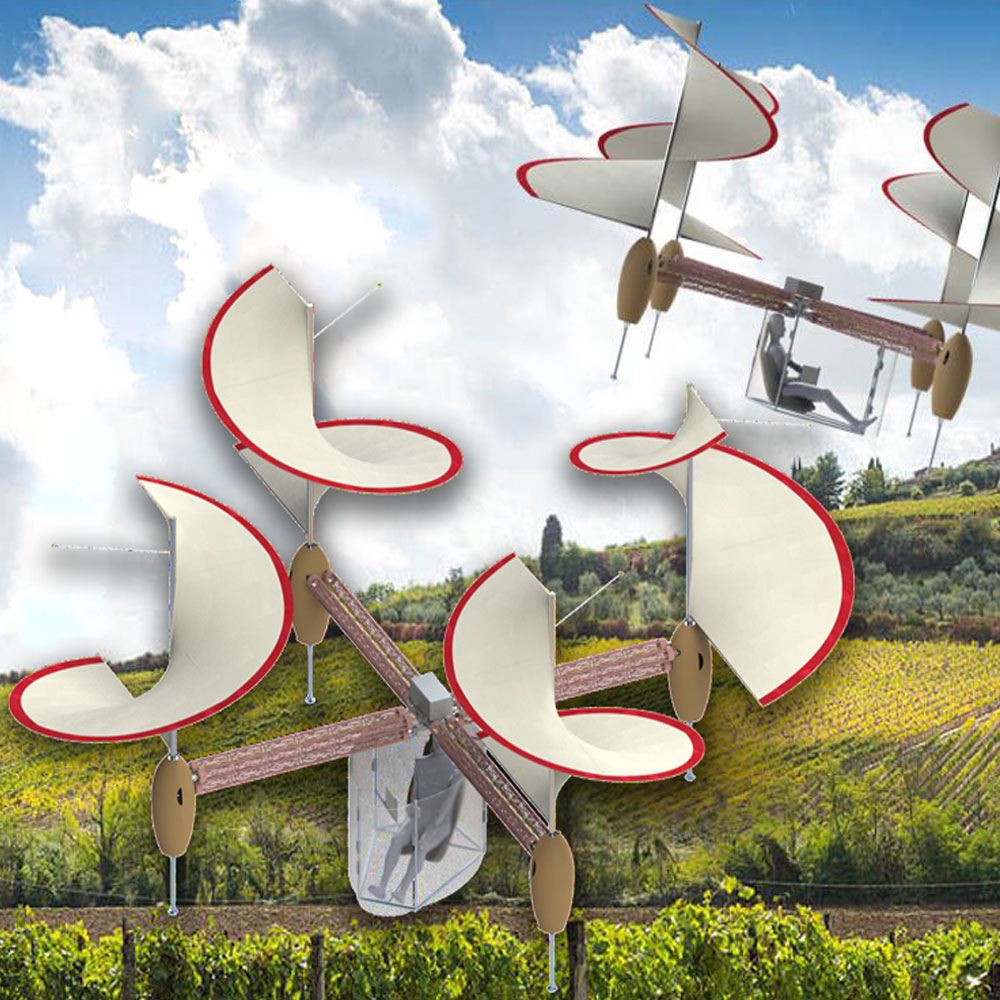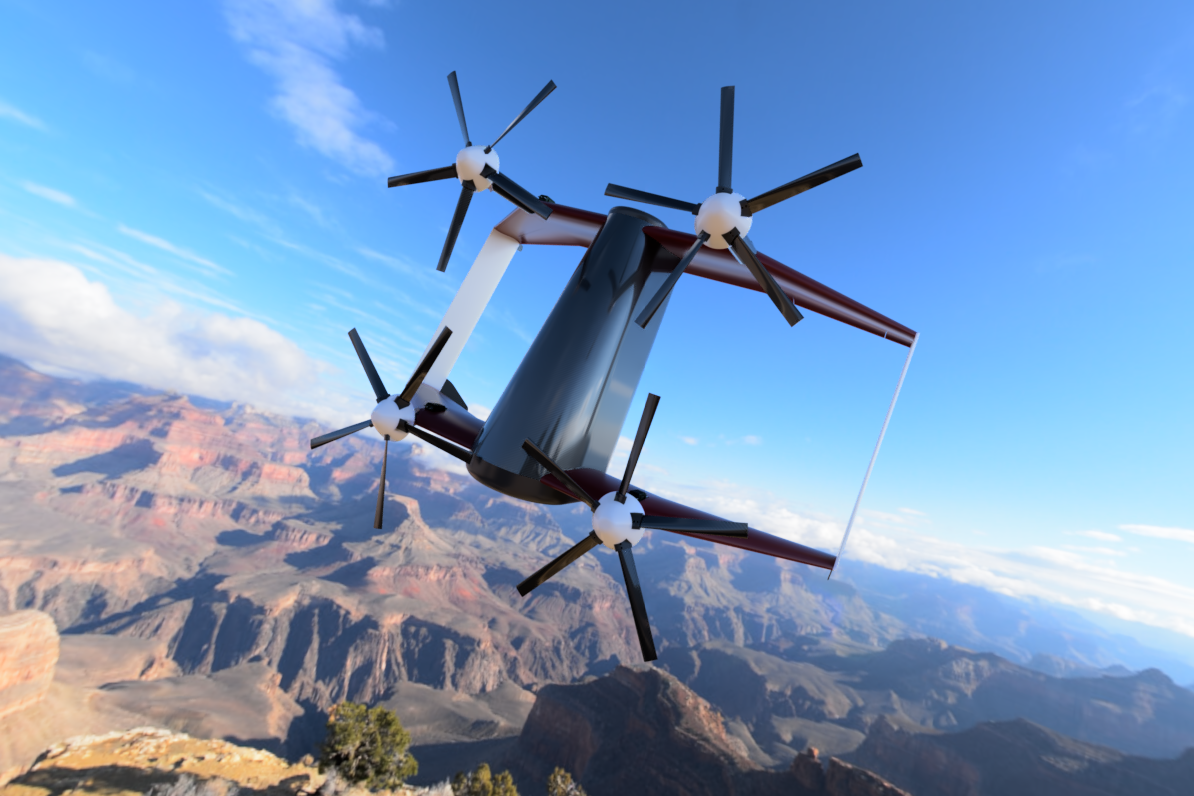News Story
Event Aims to Construct an Interest in STEM
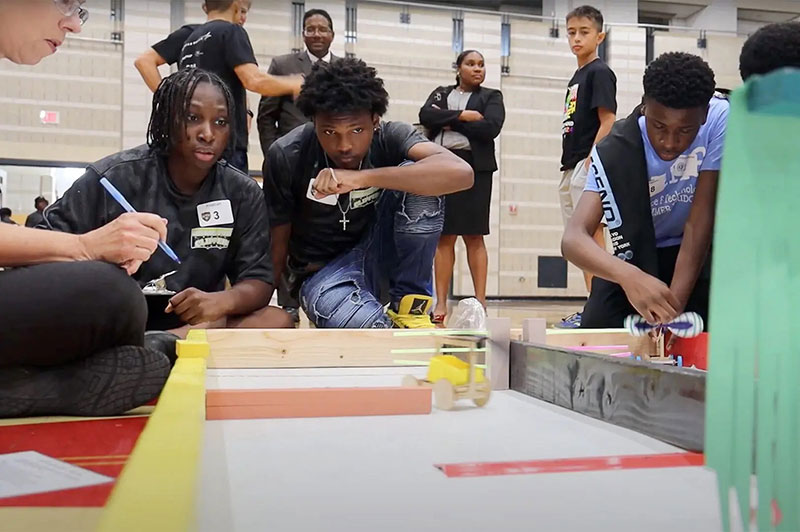
Rising ninth graders at Oxon Hill High School monitor the progress of their rubber band-powered cart in an engineering competition, while UMD president Darryll J. Pines observes in the background. Photo by Haimanot Yohannes Berhe.
Turns out that getting members of Gen Z to put down their phones doesn’t take even more whizbang technology. Sometimes a rubber band, cardboard, wood and a handful of pennies is enough.
Those were the basic ingredients for a competition Thursday at Ritchie Coliseum that brought together hundreds of rising ninth graders from four area schools for a friendly engineering competition, the second such annual event hosted by the University of Maryland’s A. James Clark School of Engineering. Students waved pompoms, clapped thunder sticks and called school chants as they cheered their classmates from the bleachers.
The teams built miniature carts powered by a rubber band-driven propellor that carried a cargo of pennies across a finish line. What looked like a race was also a way to teach concepts of aerodynamic propulsion, efficiency and mission planning. The top prize went to Eleanor Roosevelt students. “It’s not really about going faster,” said one of the winners. “It’s about having a strategic plan.”
Students also received other prizes including for most creative design and best school spirit.
“To me, the best thing about this event is that we’re treating a STEM competition like it’s a sports competition,” university President Darryll J. Pines told the students, stressing the importance of STEM (science, technology, engineering and math) in building the next generation of scientists, engineers and CEOs for the state of Maryland and the nation. “You are all winners today by focusing on STEM.”
The event capped off this summer’s 2024 GOAL (Get Out and Learn) Engineering Kit program with Prince George’s County Public Schools (PGCPS), which uses the GOAL kits used to build the carts as part of its summer bridge program for students newly registered in its four science and technology magnets—Charles Herbert Flowers, DuVal, Eleanor Roosevelt and Oxon Hill.
Spearheaded by UMD’s Women in Engineering (WIE) Program and the Environmentally and Socially Responsible Engineering (ESRE) team, the GOAL program seeks to close opportunity gaps in engineering education for women and populations underrepresented in the field. New K-12 schools are added each year, with more than 8,200 GOAL kits have been distributed in Maryland and the District of Columbia since the program began in 2020.
Pines reminded students of one of Maryland’s most recent science and technology champions, an alumna with two UMD engineering degrees who’s now living a few hundred miles above the Earth’s surface.
“Right now, Jeanette Epps is on the International Space Station,” Pines said. “But she started off just like you, simply interested in STEM and participating in competitions like this.”
New for 2024, a secondary challenge had the PGCPS students beta-testing the forthcoming iteration of GOAL kits, a projectile motion kit that teachers and students dubbed “the kerflinger.” Using simple, inexpensive hardware and a light plastic ball, the slingshot-style launcher introduces students to concepts of trajectory, power and flight path. Eight plywood stations for the projectile motion challenge were built during WIE emPower, a summer day camp designed to introduce middle school girls to power tools that was run the previous week by WIE, with undergraduate mentoring.
“As our undergraduates move through the design process, they appreciate the necessity of incorporating stakeholder involvement—in this case teachers and students—just as they will in their academic and professional careers,” said Vince Nguyen, a mechanical engineering senior lecturer and a co-pioneer of the GOAL kit concept with the WIE Program.
Felicia Martin Latief, STEM supervisor for PGCPS, said the GOAL program helps her office grow student interest in engineering, prepare students for a rigorous high school education, and set their sights on attendance at the state’s flagship university.
An Eleanor Roosevelt student from Bowie, Md., said it “felt good to be on campus and looking at colleges early.”
Jen Bishop, assistant director of WIE outreach and recruitment, said she is always looking for new ways to recruit and retain varied populations in engineering, and that these challenge events play a big part.
“The enthusiasm PGCPS students and teachers bring is inspiring,” she said. “We hope to see many of these students as future Maryland engineers.”
Story by Rebecca Moon Ruark for Maryland Today.
Published July 26, 2024
